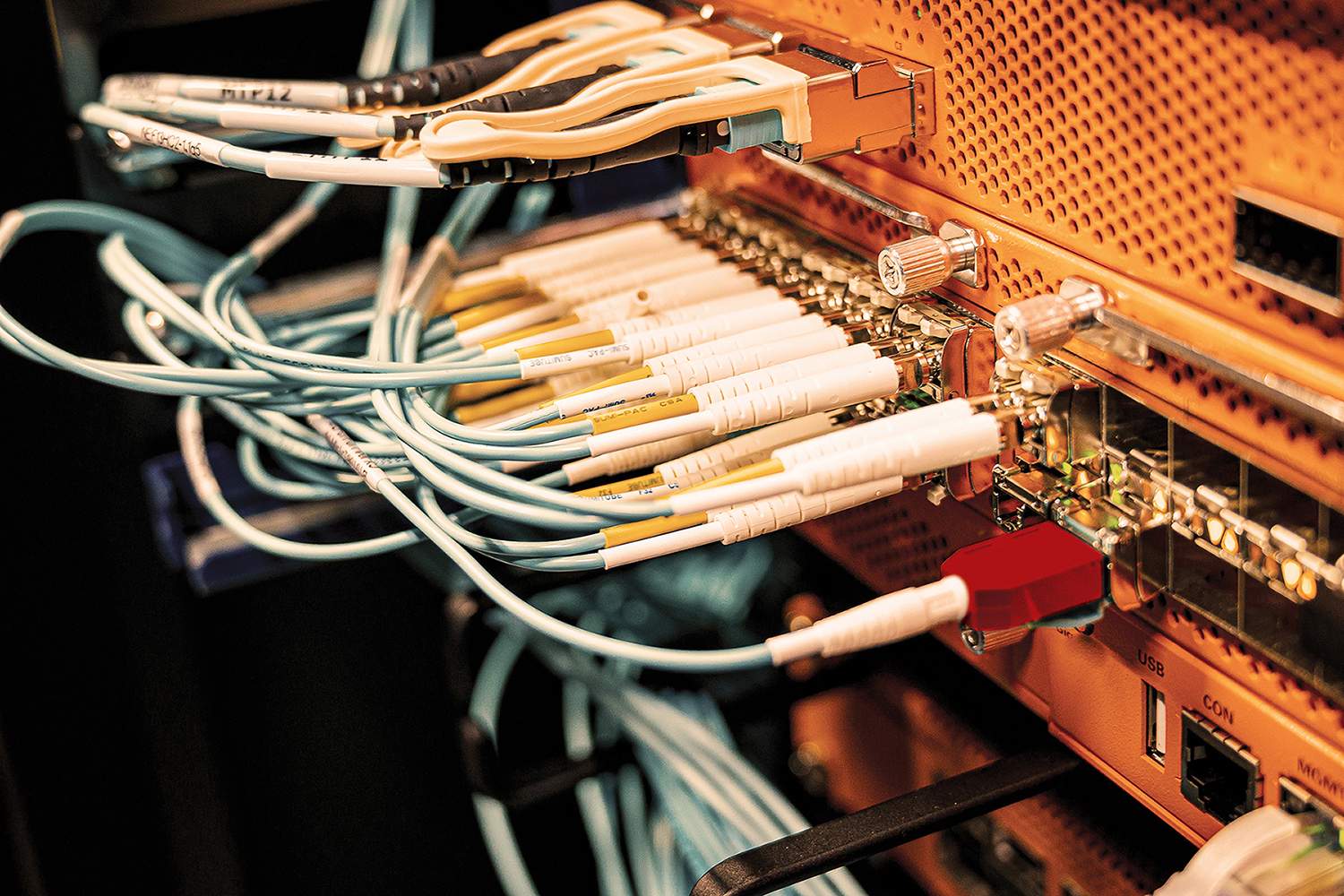Hybrid Internet: How it Works to Empower Your Business?
-
September 28, 2022
-
6 min read

What is a Hybrid Internet Connection?
A hybrid internet connection brings together two types of internet connections, such as Wi-Fi and Ethernet. This ensures that a business can achieve higher bandwidth and security than it would when using just one type of internet connection.
Wireless connections are beneficial for rapid deployment, low initial investment, high area coverage, and high return on investment. Meanwhile, fibre connections are best known for providing better bandwidth, stability, and low maintenance. So, businesses can get the best of both worlds by combining the two.
How does hybrid internet work?
Fibre internet connections are the best for linking computers and servers. But with a wireless connection, you have the flexibility to use the same network in your lunchroom, conference rooms, and even bathrooms. Everybody wants to stay connected, share and receive files without limiting themselves to a geographic location. A hybrid internet connection helps achieve this.
The hybrid network relies on a special hybrid router to connect wired and wireless devices. When someone is trying to access a website from any device, the hybrid router may act in two different ways.
- Different IP addresses
In this scenario, the hybrid router will intelligently load-balance the request packets over the wired and wireless networks to the transmission control protocol (TCP) and then to the World Wide Web. The router ensures that the TCP connection is established over the same interface.
- Same IP address
In this scenario, the router will allocate a single IP address to both the wired and wireless network and also configure the routing to ensure that the packets are correctly routed. The router also intelligently deals with the issue of different delays and bandwidths.
Benefits of hybrid internet
Hybrid internet networks provide a robust architecture for the needs of a flexible business. A properly configured hybrid internet connection will be agile, secure, reliable, and more cost-effective than wired or wireless internet.
- Improved agility
The hybrid network uses both types of infrastructure to optimise speed and security while allowing flexible growth that modern businesses require for bandwidth consumption of cloud, SaaS, and remote working requirements.
- Network reliability
Both wired and wireless networks require maintenance to work properly. So, a properly designed hybrid internet will keep all the networks active and route traffic intelligently when one connection is facing an outage in service. Additionally, hybrid internet connections with dynamic management remove the need for human intervention, which eliminates the likelihood of errors.
- Cost-effective
A dedicated hybrid internet connection reduces operating costs by running in multi-internet infrastructures and avoiding redundant networks. Additionally, the bandwidth of a standard wireless connection will be substantially lower than that of dedicated leased lines.
- Better security
The hybrid network uses cloud-based gateways, which helps avoid routing traffic through secure data centres every time. This improves performance as the network can take the shortest possible route without compromising security.
- Access the cloud
Businesses today are increasingly dependent on cloud-based applications and platforms like Salesforce and Azure. By using two types of networks, hybrid internet connections can seamlessly access these cloud platforms and provide better security and performance akin to a dedicated private network.
- Optimised IP
The network vendors can provide a third option or a new type of network, which has an optimised IP. They can put their own equipment or software, which will help to improve the performance of the internet, thus providing a private cloud within the internet.
How hybrid network empowers businesses?
Businesses using a dedicated hybrid internet connection can ensure that employees using different devices can access the same data from any part of the world. Moreover, companies do not need to upgrade their entire network, which means they can retain different network architectures from different eras.
For example, two offices can be connected through ATM fibre, while others might be connected through Wi-Fi and home users by 4G. So, by leveraging technologies like Multi-Protocol Label Switching (MPLS), businesses can route traffic from different technologies within the same network.
Must Read: 5 Key Differences Between MPLS and Leased Line
Suppose you have an ethernet connection at home. You will not replace the ethernet with a wireless connection to use a wireless device. You can simply add a Wi-Fi router to your network. Similarly, businesses cannot replace their entire network due to budgetary and time constraints. Therefore, a hybrid network can help bring in new technologies while slowly phasing out old ones.
Additionally, the benefits of a hybrid internet connection discussed above apply to the whole business scenario and empower it.
Considerations when choosing the hybrid network
To experience all the benefits of a hybrid internet connection, choose a professional service provider like Airtel. Businesses should also consider the topology of traffic, routing model, and internet service provider to help assure success.
- Traffic topology
Applications and service bandwidths must be analysed with great attention. Also, a proper understanding of network traffic patterns is necessary for the efficient running of the hybrid internet. A wrong decision in this step can lead to work intervention and low performance.
- Routing model
The uptime and performance of a hybrid internet connection should be planned appropriately. Also, it must be ensured that the design covers failover requirements, traffic management, and smooth transitioning to other available networks. The system must be tested rigorously across the whole network.
- Internet Service Providers
Internet service can vary substantially in terms of reliability and connection depending on factors such as the placement of the device, distance from the tower, and network strength. In contrast, dedicated wired connections offer a predictable and stable performance. But a hybrid internet connection is also dependent on the internet service provider to a certain extent. This means that the ISP chosen will impact the overall outcome of the hybrid network.
Wrapping up
One must be mindful when selecting an ISP and a wired connection. It would be beneficial to choose a reputed vendor with experience in providing this type of mixed infrastructure. One such reputed brand is Airtel, which has provided internet to homes and businesses for over 10 years.
 Share
Share












